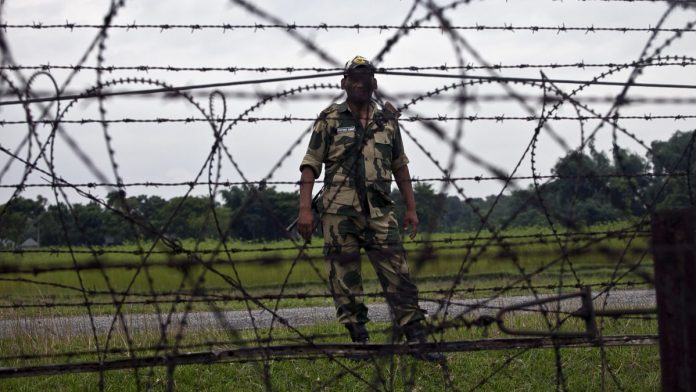
New Delhi: The relevance of a 71-year-old United Nations (UN) initiative for peace between India and Pakistan is up for debate once again amid intensified cross-border firing in the wake of the 14 February Pulwama attack.
Pakistan has reiterated its call for an investigation by the UN Military Observer Group in India and Pakistan (UNMOGIP), a body set up in 1948 to investigate and mediate disputes arising out of J&K, as cross-border exchanges cause death and destruction on both sides.
However, a top government official told ThePrint that India continues to remain firm on its stance that the role of the UNMOGIP is over, and that the idea to bring them in was “never even contemplated” over the past 50 years, since the Simla Agreement called for bilateral negotiations to resolve disputes.
“While Pakistan continues to insist on it, there is no question of the UNMOGIP coming into the picture,” said another official who refused to be identified.
‘A bilateral matter’
There have reportedly been 110 ceasefire violations by Pakistan since January, with the frequency increasing after India’s 26 February air strike on camps of the terror group Jaish-e-Mohammed (JeM) in Khyber-Pakhtunkhwa.
In recent days, cross-border exchanges have killed an Indian Army soldier, while Pakistan claimed four civilian deaths on its territory last month.
In light of the reported casualties, which Islamabad blamed on “India’s deliberate firing on civilians”, the Pakistan Foreign Ministry had summoned India’s then acting High Commissioner Gaurav Ahluwalia to lodge a protest.
At the time, Pakistan’s Foreign Ministry spokesperson and director general (South Asia and SAARC) Mohammad Faisal urged India to let the UNMOGIP inquire into the matter.
This is not the first time Pakistan has stressed the need to involve the 115-strong team to control border clashes, which sometimes continue for months, killing not just soldiers but also civilians.
On 29 September last year, while addressing the UN General Assembly, Pakistan Foreign Minister Shah Mahmood Qureshi stressed that Islamabad continued to remain committed to the UNMOGIP.
A day after the Pulwama attack, which led to the death of 40 CRPF personnel at the hands of a JeM-affiliated suicide bomber, the UNMOGIP held a briefing for the military attachés of several countries accredited to Pakistan. The briefing was carried out by the head of mission and chief military observer Major General José Eladio Alcaín, with the UNMOGIP planning a similar conference in India as well.
India, however, has seen the group as irrelevant since the signing of the 1972 Simla Agreement, which recognised the ceasefire line as Line of Control (LoC), stating that the border dispute was a bilateral matter that didn’t require international intervention.
‘Unlikely to accept mediation’
Speaking to ThePrint, experts said the involvement of the UNMOGIP might help reduce tension between the two neighbours.
“The sensible (and humane) course of action would be for the government of India to make better use of the presence of UNMOGIP — but this goes contrary to the position successive governments have adopted, that Jammu & Kashmir is an integral part of India and no foreign presence is necessary or desirable,” said British military historian Victoria Schofield, who has done extensive work on Kashmir.
“Increasing the UN presence would imply acceptance that the state is ‘disputed’,” she added,
“If both countries agreed to an increased presence of impartial UNMOGIP forces, then I think it would go some way to reducing tensions and preventing the tit-for-tat firing which goes on to the detriment of those who live there,” Schofield added.
According to Happymon Jacob, professor of disarmament studies at JNU and an India-Pakistan expert, the UNMOGIP played a crucial role in mediating border kinetics between both sides till the 1971 war, by closely working with both the armies.
“Clearly, the absence of a neutral peacekeeper means more border violence, but under the circumstances India is unlikely to accept any mediation from the UN on the Kashmir question,” Jacob said.
Separate fact from fiction, the real from the fake going viral on social media, on HoaXposed .